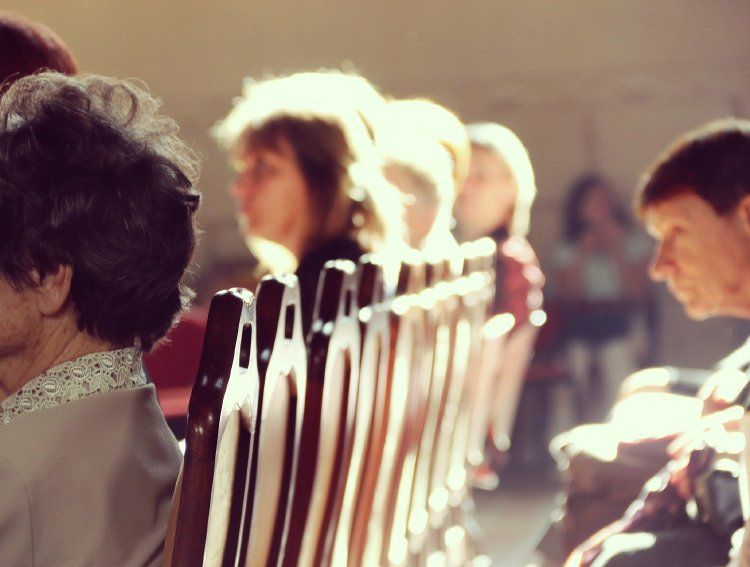Last month I emphasised that our gospel outreach witness should include sharing the gospel with members of various cults. Too often, we have ignored or neglected these people for a variety of reasons. But they really need the gospel.
Occasionally I hear former cult members complain that no one had shared the gospel with them for years while they were in the cult, even though they had probably met many born-again Christians on their door-to-door visitation or street canvassing as active cult members.
Are you guilty of being silent when you should be pointing such individuals to the Lord Jesus Christ?
In this month’s article I want to refer to some important pastoral challenges we need to face if we are to receive cult or former cult members into our churches. Make no mistake about it. There are pastoral challenges here for our fellowships.
Welcome
The first pastoral challenge is a basic one and it concerns the welcome we extend to people. Without this, our outreach work and attempts at nurturing these individuals will be seriously undermined.
Perhaps these are much bigger and deeper problems than churches realise, but I will confine my attention to those with cult associations.
For example, what if a Jehovah’s Witness known in your locality for his or her zeal turns up unexpectedly at one of your Sunday services? You may be shocked. And, possibly, your suspicions are aroused. Why has he come?
Or it may be a former member of a nearby church who converted to the Mormon faith seven years earlier. Now she walks into your church and seems eager to be in the worship service. Is she really welcomed?

Confused
The challenge may be even more demanding. Imagine two young men in their twenties walking into your church. They are polite and eager to hear the Bible expounded. But as they enter the church, most of the congregation turn and stare at them.
Some are shocked and whisper to those sitting nearby. The reason? These two men are Hare Krishna followers and they are confused. They want to know more about Jesus Christ.
A few days earlier they had been given a tract explaining the gospel. They were intrigued and wished to know more about a loving God who gave his Son to die bearing the punishment of sinners.
Yes, here they were in church for the very first time. But they were conscious of people looking at them, some with disdain and suspicion. Admittedly, their faces were marked with paint, their heads were shaved except for a small pigtail and their clothes were colourful. Church members felt distinctly uncomfortable at seeing them and, after the service, unsure whether to ignore them or not.
Strangers
It was one of the church elders who took the initiative after the service ended. He shook their hands warmly in welcoming them. Next he introduced them to some believers of their own age and sex then invited them home for a meal and discussion.
The welcome was warm and sincere. What is more, some of the believers in the church felt convicted by the example of their church elder.
Is it an extreme or uncommon example? It may be in terms of Hare Krishna disciples who come to our churches seeking the Lord. But what of other strangers who visit our churches, possibly searching for the truth? Are they made to feel welcome?
I hear of ‘visitors’ to some Evangelical churches who have found congregations unwelcoming and indifferent; some of these visitors have been ex-cult members. Here is a pastoral challenge churches must face up to.

Understanding
Another pastoral challenge is for believers, especially church leaders, to understand the needs of ex-cult members who come to our churches. Allow me to illustrate this challenge in four ways.
Sometimes, those who have been in a cult feel extremely guilty for leaving the cult. Perhaps it is a feeling of guilt for having been drawn into the cult and deceived by it. This sense of guilt and shame can be crippling. Or it may be a sense of guilt for having ‘let down’ their friends and leaders in that cult.
Secondly, others have a paralysing fear. Some ex-JWs or former Exclusive Brethren or Cooneyites, for example, may be frightened because they were ‘disfellowshipped’ by their group.
This may have involved rejection and exclusion by their families and close friends. Their own future consequently appears dark and lonely.
Sometimes an ex-cult member may fear that it was a mistake to leave the cult. Perhaps the exclusivist claims of the cult still ring in his ears: ‘Churches are synagogues of Satan and only the Watchtower has the truth’.
Cultic leaders have even told members that they will go to hell if they forsake the cult. It is a real fear, especially for those who want to be right with God and have assurance of their salvation. We need to understand their fears.
Rejection
A third example of the need for understanding is their rejection by friends and relatives. There may be loneliness and a desperate need to ‘belong’ to a fellowship. Some Christian families have been brilliant in this respect and welcomed such people into their home for an unlimited period. Their love and understanding have expressed the Lord’s love in helpful ways.
A final example where understanding is needed concerns the continuing, strong influence of the cult on an individual, even months after they have forsaken the cult and been converted to Christ.
In my pastoral experience, this was particularly true in relation to ex-JWs. For many months, even after their conversion, the ideas and practices of that cult lingered with individuals.
They needed understanding as well as practical teaching concerning their new-found freedom in Christ. Were a fixed weekly number of hours for ‘ministry’, such as door-to-door visitation, still required? Should they act on medical advice and receive blood transfusions? Are they really free to vote in local/government elections?
Such people need to be listened to, understood and helped to understand what the Word teaches.
Seriousness
A further pastoral challenge is that we need to be more serious in our churches about our faith and our walk with the Lord. That is what many ex-cult members expect. After all, they are serious themselves.
In fact, their following of Christ is often costly; they are hungry to know God, to understand his Word correctly and to please the Lord in their lives. Entertainment, endless singing or mere socialising are not priorities for them. In this respect, we can learn from them.
Teaching
One final pastoral challenge will suffice. This concerns the lack of Bible knowledge and theology on the part of many Christians in our churches. Far too often, Christians are unable to answer basic questions from ex-cultists and others concerning major Bible doctrines. This is tragic, and I appeal to church leaders to address this challenge as a matter of urgency.
There are many ways of responding to this pastoral challenge but here is one way I found helpful and enriching in my church situation.
I invited all the church members to embark on a basic Christian reading course and to meet me monthly after a weeknight meeting to share their findings. The agreed syllabus was basic.
My aim was three-fold. Firstly, I wanted Christians to dig more deeply in the Word and become more familiar with the Bible text. We began with John’s Gospel, using Hendriksen’s commentary. This certainly stretched the people!
Edifying
The second aim was to introduce them to church history. Ryle’s Five English Reformers then his Five Christian Leaders was where we started. Only one chapter a month was read but their accounts of what they had learnt, and how they felt challenged, were thrilling and edifying to us all. To see biblical doctrines illustrated and influential in these historical situations was helpful.
The third aim was to engage with systematic theology. Because it was easy to read, I started them with Pink’s Sovereignty of God. It worked, too! Monthly discussions on the book were animated and instructive.
Overall, I felt that a significant number of believers were growing in their understanding of the Bible and theology. This understanding they began to share more with others. How are you responding to this pastoral challenge in your church?

















